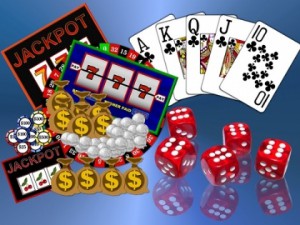Video Poker and Stress
Losing, suspicions can make for a very trying gambling experience
by Bob Dancer
A number of different factors make video poker stressful. One of these is losing. People don’t like to lose, although each person reacts differently. And you will lose at video poker far more frequently than you win. (If you’re doing it right, the size of the wins is much larger than the size of the losses, but the number of losses will always be higher.) Even if they aren’t playing for money, just plain losing bothers many.
Losing money, of course, is worse. After leaving $1,000 behind at your friendly casino, it is common to muse about what you could have done instead. How many vacations to Hawaii have you given up because of gambling? That’s stressful. Do you think about that? That’s stressful.
A separate issue is the FEAR of losing. Let’s say you have $1,000 in your pocket and you owe $800 for rent or something. You start off losing and first thing you know, you only have $750. Now you start to worry about the consequences of not paying your rent. Even if the game turns around and you end up ahead $100 for the evening, for a total of $1,100, and the rent is paid, there was considerable angst while you worried.
I play mostly in Nevada and I believe the games are 100% fair—so I have no worries about whether I’ll be cheated. Other states have different rules. And even if they have the same rules, some people are naturally suspicious anyway. Being suspicious is stressful.
Video poker leads itself to second-guessing. Let’s say you are dealt Js 3c Kh Qh Jh. Whether holding the hearts or the jacks is correct depends on the game and sometimes the pay schedule. But let’s assume, right or wrong, you hold the jacks and the first two cards out are the Ah Th. Had you made the other play you would have ended up with a royal flush. I know people who examine the draw after playing, hoping that they haven’t done this. (Personally I don’t even check. Why bother? There’s nothing to do about it after it’s over anyway.) When it does turn out that the play they didn’t make would have turned out better, these people become stressed.
There are physical issues to playing video poker. You need to sit up for hours at a time. You need to keep your fingers moving. You need to be able to concentrate. The healthier you are, the easier these things are to do. Physical stress is not quite the same as mental stress, but it’s all related.
There are safety issues to be concerned with. If people see you collect a $4,000 or larger jackpot and put the money in your pocket, will they follow you out to your car later? If they do, how will it all work out? (If you don’t think about these things, you should. It’s naïve to believe that there aren’t a number of people out there looking for an easy score.)
There are other things stressful about the game, but that’s enough for now. What can we do about it?
First of all, this stress isn’t all bad. The things that are stressful when they go bad are the same things that are enjoyable when they go well. Take those things away and you’re playing solitaire. Nothing wrong with solitaire, if that’s your thing, but you don’t have millions of people rushing to do it every day.
Everyone has their own techniques for dealing with stress. Some use food, alcohol, or other drugs. Some internalize it and let it eat at them. Others have not-so-pleasant personality quirks appear, sometimes with serious consequences.
For me personally, I have two techniques to deal with stress. These may or may not work for you, but I recommend them nevertheless.
First, I recommend studying the games. When you understand the ups and downs of a game, often they don’t get you down as much as when everything takes you by surprise. Also, the more you know about the games, the better your results will be. That means your wins will be a little bigger and your losses will be a little smaller. Both of those things reduce stress.
Second, I strongly recommend physical exercise. As I write this, I’m 60 years old and my exercise routine includes cycling, weight lifting, running, and dancing—plus I try to eat sensibly. (Eating right is harder for me than working out.) When all parts of your body are working, it allows you to cope better with the physical aspects of the game, plus there are chemicals created by the body during exercise that allow you to deal with other aspects of stress better too.
I find these stress-reducing strategies every bit as important as knowing how to play the hands.



